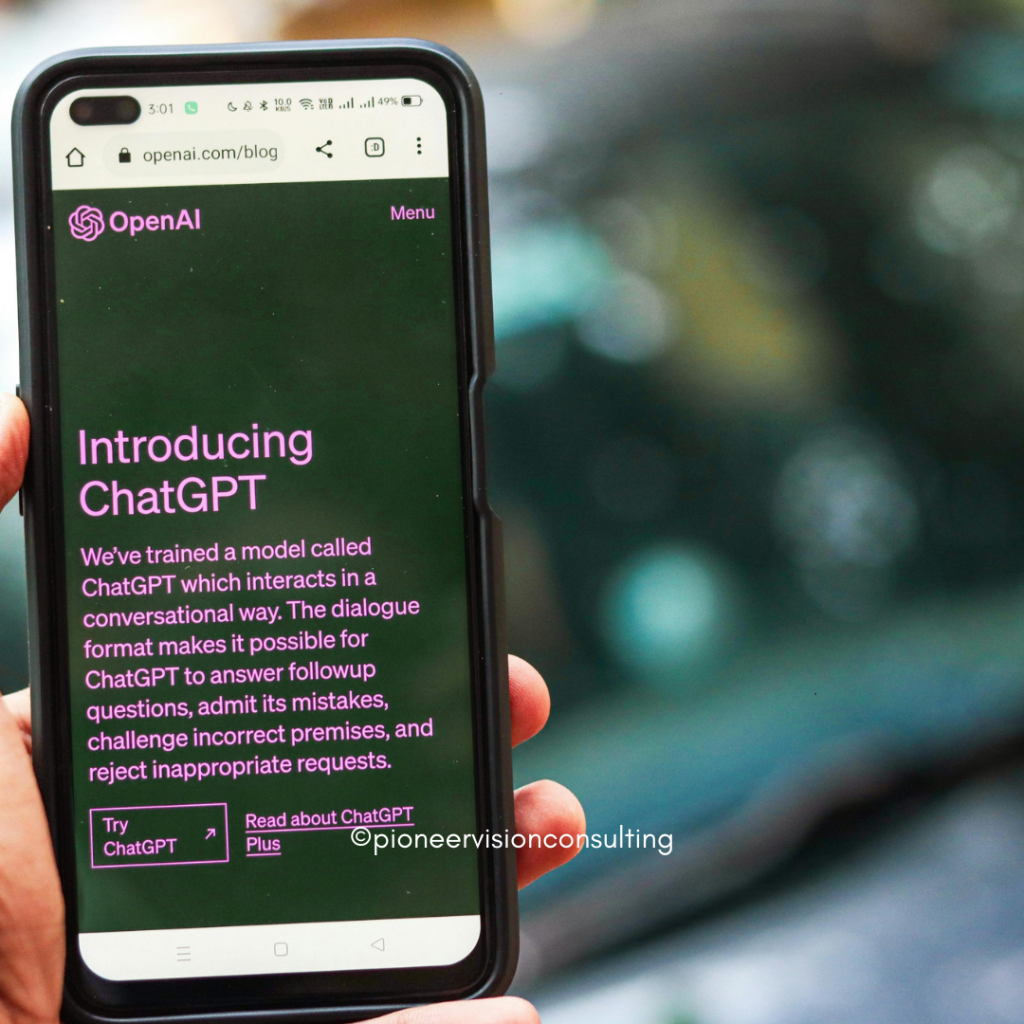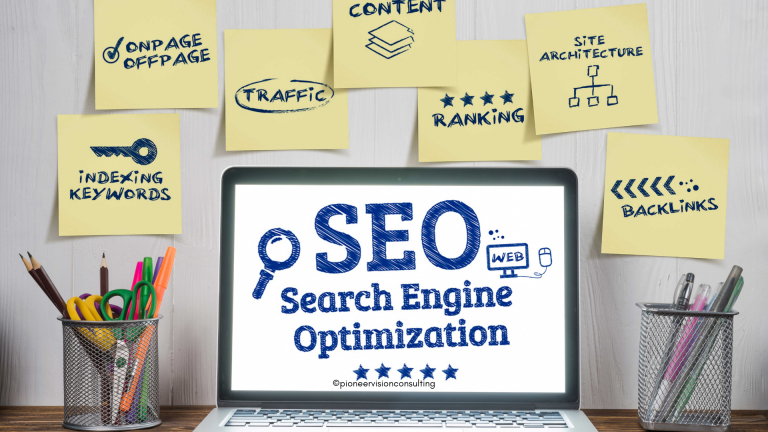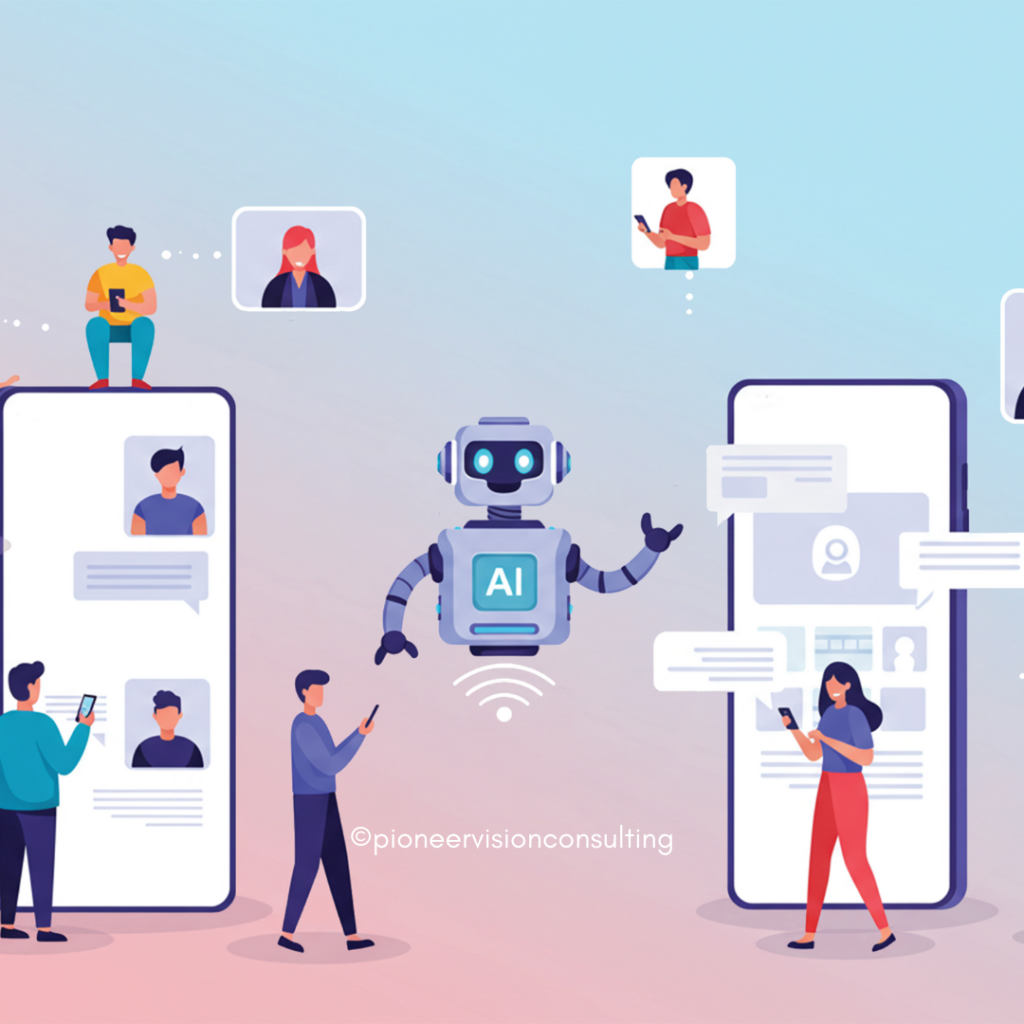Meta tags are critical for click-through rates. ChatGPT crafts enticing tags and descriptions that draw attention.
Meta descriptions summarize a page’s content. ChatGPT generates concise, keyword-rich descriptions that stand out.
It ensures meta tags align with search intents and keywords. This alignment enhances relevance and visibility on search engine results pages (SERPs).
Accurate meta tags increase site traffic. They encourage potential visitors to click, driven by well-written previews.
Improving On-Page SEO with ChatGPT’s Assistance
On-page SEO is vital for improving user experience. ChatGPT optimizes elements beyond content generation.
It evaluates page titles for keyword relevance and suggests enhancements. This ensures that titles are both catchy and SEO-friendly.
ChatGPT organizes and enhances internal linking. This strategy boosts website navigation and aids search engines in crawling.
Key areas ChatGPT targets for on-page improvements:
- Title Tags: Ensures keyword optimization for visibility.
- Alt Text: Generates descriptive tags for image SEO.
- Content Layout: Recommends structural enhancements for readability.
AI assistance accelerates on-page SEO processes. ChatGPT identifies the best practices for improving page performance.
Diversifying Content Types for SEO Success
Different content types attract varied audience interests. ChatGPT assists in creating a range of content formats.
It crafts engaging blog posts, sophisticated whitepapers, and product descriptions. This diversity caters to different audience preferences.
Multimedia content, like video scripts, gains traction with ChatGPT’s input. It provides clear directions for video narration and dialogue.
Use cases for ChatGPT in diverse content creation:
- Blog Posts: Develops SEO-optimized articles for knowledge sharing.
- Video Content: Crafts scripts that engage viewers effectively.
- Product Descriptions: Highlights features that attract potential buyers.
This diversity ensures coverage across platforms and preferences. It increases interaction with content, fostering a broader reach.
Integrating ChatGPT into Your SEO Workflow
Incorporating ChatGPT into your SEO process boosts efficiency. It acts as an extension of your team, handling various tasks.
Start by analyzing your current workflow. Identify repetitive tasks that ChatGPT can automate effectively.
The flexibility of ChatGPT adapts to various SEO needs. Its capabilities range from content creation to keyword analysis.
Integrating ChatGPT saves time and resources. This lets your team focus on strategic planning and creative work.
Consider these steps for smooth integration:
- Identify Tasks: Pinpoint tasks ideal for automation.
- Set Objectives: Define clear goals for AI-driven efforts.
- Monitor Output: Regularly assess content for quality and accuracy.
- Iterate: Continuously improve prompts based on results.
By leveraging ChatGPT in your SEO workflow, you unleash a powerful ally. It works tirelessly to enhance your online presence.
Training ChatGPT with Effective SEO Prompts
Crafting the right prompts is crucial for success. Effective prompts direct ChatGPT towards generating valuable outputs.
Focus on clarity and specificity when designing prompts. This ensures ChatGPT understands the task and produces meaningful content.
Start with simple requests before advancing to complex tasks. Gradual complexity helps hone ChatGPT’s abilities in generating SEO-relevant content.
Experiment with different phrasing and language styles. This helps explore ChatGPT’s full potential and adaptability in SEO.
Maintaining Content Quality and Relevance
Quality and relevance are key pillars of effective SEO. ChatGPT assists, but human oversight ensures these standards.
Review AI-generated content regularly. This maintains alignment with business goals and audience expectations.
Frequent updates to content guidelines aid ChatGPT in staying relevant. They adapt to evolving SEO trends and search engine algorithms.
Guidelines to maintain high-quality content:
- Review Regularly: Schedule consistent reviews for output assessment.
- Feedback Loop: Provide feedback on areas needing enhancement.
- Adapt Guidelines: Update content parameters as needed.
- Consistent Tone: Ensure the AI follows brand voice and messaging.
By using these practices, ChatGPT enhances your content while preserving quality. This balance between AI efficiency and human creativity fosters SEO success.
Automating Repetitive SEO Tasks with ChatGPT
Automating repetitive SEO tasks can significantly boost productivity. ChatGPT excels at handling mundane activities, freeing human resources for more strategic efforts.
An AI-driven approach allows ChatGPT to manage tasks like metadata creation and content updates. The tool swiftly generates meta titles and descriptions, ensuring they’re both compelling and SEO-friendly.
Automation not only saves time but also increases consistency. ChatGPT provides reliable, prompt, and uniform outputs, reducing human error in repetitive tasks.
Consider automating the following tasks with ChatGPT:
- Metadata Generation: Automate the creation of titles and descriptions.
- Content Refresh: Schedule periodic updates for evergreen content.
- Keyword Analysis: Regularly track and analyze keyword trends.
- Competitor Monitoring: Keep tabs on competitor activities and adapt strategies.
Through automation, ChatGPT brings efficiency to your SEO endeavors. It enables you to maintain focus on creative and high-level strategic planning without the drag of repetitive tasks.
The Limitations and Ethical Considerations of AI in SEO
AI in SEO, like ChatGPT, offers impressive advantages but has inherent limitations. Understanding these can help maximize your strategies effectively. Not all AI tools can grasp context or nuances fully, sometimes resulting in less accurate outputs.
Ethical considerations also play a role when using AI for SEO. It’s crucial to evaluate whether AI-generated content aligns with brand values and user expectations. This requires a responsible approach to maintain trust and authenticity.
Some key considerations include:
- Content Quality: AI can provide generic content without deeper insights.
- Bias and Ethics: Data biases can skew AI outputs, affecting fairness.
- User Trust: Over-reliance on AI may erode the human element, impacting engagement.
Balancing AI use with human oversight ensures ethical standards and qualitative results. As AI’s role in SEO evolves, continuous vigilance and adaptation are essential to address potential limitations and ethical challenges. This helps preserve the integrity of digital marketing practices, ensuring ethical compliance and high content standards.
Case Studies: ChatGPT’s Impact on SEO
The power of ChatGPT in SEO can be seen through compelling case studies. One online retailer improved its organic traffic by using ChatGPT for keyword analysis. By identifying untapped long-tail keywords, they increased their website’s visibility significantly.
Another company in the tech industry leveraged ChatGPT for content diversification. They used AI to generate blog posts and product descriptions, which resonated well with their audience. As a result, engagement rates surged, enhancing brand visibility.
Consider a digital marketing agency that integrated ChatGPT for automated SEO reports. This streamlined their processes, saving time while providing clients with comprehensive insights. The automation allowed for a more strategic focus on creative strategies and client relationships.
A small e-commerce business utilized ChatGPT to optimize their meta descriptions and tags. This AI-assisted effort led to improved click-through rates from search engines. The business saw a tangible boost in conversions, underscoring ChatGPT’s efficacy.
These case studies illustrate ChatGPT’s transformative impact on SEO. By optimizing content, enhancing processes, and improving keyword strategies, businesses have achieved significant successes. Such results highlight the potential for AI-driven SEO strategies to enhance online performance substantially.
Measuring the Effectiveness of ChatGPT in SEO
Evaluating ChatGPT’s impact on SEO involves various metrics. Monitoring changes in organic traffic is a primary indicator. Increased traffic suggests improved visibility due to AI-driven optimization.
Conversion rates also provide insights into effectiveness. If ChatGPT-generated content leads to higher conversions, it indicates alignment with audience needs. This metric is critical for assessing content quality and relevance.
Monitoring keyword rankings offers further validation. Tracking the performance of targeted keywords can reveal ChatGPT’s influence on search engine results. Higher rankings suggest success in keyword strategy implementation.
Consider using the following metrics to measure ChatGPT’s effectiveness:
- Organic Traffic Changes
- Conversion Rate Improvements
- Keyword Ranking Performance
- User Engagement Metrics (time on site, bounce rate)
- Content Production Efficiency
User engagement metrics are another valuable assessment tool. Analyzing how users interact with content helps determine its appeal and effectiveness. Metrics such as time on site and bounce rate can pinpoint content strengths and weaknesses.
These measurement approaches not only validate ChatGPT’s contributions but also guide future SEO strategies. Adjustments based on these insights can lead to continuous improvement and sustained success. Accurate measurement ensures that AI tools deliver desired outcomes in the dynamic SEO landscape.
Conclusion: Embracing the Future of AI-Driven SEO
AI-driven tools like ChatGPT are revolutionizing the SEO landscape. As technology advances, these tools offer innovative solutions for optimizing digital presence. Adopting AI in SEO strategy is no longer optional but necessary for staying competitive.
Integrating ChatGPT enhances efficiency and content quality. It enables businesses to deliver precise, user-focused content effortlessly. This shift allows SEO professionals to focus on strategic planning rather than mundane tasks.
The future holds limitless possibilities with AI and SEO. Embracing these advancements equips businesses to navigate the evolving digital environment successfully. As we integrate AI further into our workflows, adapting to new trends will ensure long-term success.








